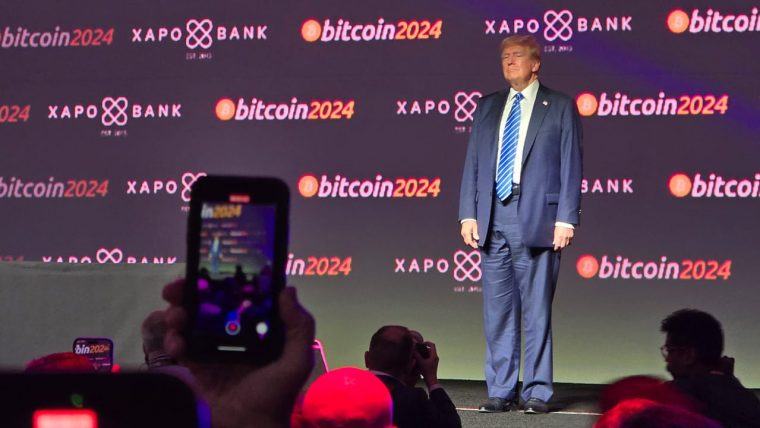警惕!揭露五大假冒“中国国家项目”的诈骗陷阱,瞄准中老年人辛苦积攒的财富
近期,出现了多款假冒“国家项目”的诈骗应用程序,它们以“扶贫发钱”、“高额分红”为诱饵,采用伪造政府文件、虚构央企背景等手段,专门针对中老年群体进行精准诈骗。这些诈骗的本质都是庞氏骗局,目的是诱骗人们缴费后卷走资金。
Recently, numerous fake "national project" scam apps have emerged, luring victims with promises of "poverty alleviation payments" and "high returns." These scams use forged official documents, fabricate background connections with state-owned enterprises, and target mainly middle-aged and elderly populations with precision. Their core tactic is to induce users to pay fees and then disappear with the money—typical Ponzi schemes disguised as genuine government initiatives.
 Analysis
Analysis
In an era overwhelmed by information, scammers always follow the latest trends, exploiting public trust in government policies and the desire for wealth to weave elaborate schemes. Recently, many apps claiming to be “national projects” have appeared online. These apps forge official documents, create grand blueprints, and specifically target middle-aged and elderly individuals with promises of "poverty relief payments" or "high dividends." In reality, they are meticulously designed traps that extract money under false pretenses. This article exposes five typical “Chinese concept” scams, warning the public to stay alert and safeguard their hard-earned money.
1. “China Poverty Alleviation Initiative” App: Forged official documents targeting pensions
This app, titled “China Poverty Alleviation Initiative,” boasts elaborate packaging but is essentially a classic scam involving unfreezing national assets.
Fake Promotion: The app name “China Poverty Alleviation Initiative” is highly misleading. It does not exist in app stores and lacks official website registration, making it an illegal software. Scammers forge official documents claiming the government is executing “poverty alleviation,” distributing money via the app.
Identity Theft: They induce users to provide personal information and address details, then send fake “Chinese Year of the Snake Gold Cards” or “commemorative coins,” claiming they are worth tens of thousands of yuan. Once recipients receive these counterfeit items, victims face further scams.
Layered Fees: Scammers require payments for “activation,” “management,” “withdrawal,” and other fees. Victims keep paying but cannot withdraw funds. Eventually, the app becomes inaccessible or crashes, exposing the scam.
Warning: China has successfully eradicated extreme poverty; such “money distribution” apps are false. According to regulations, individuals receiving pensions, minimum living allowances, or government salaries are not eligible for assistance under these schemes. Such “poverty alleviation” messages are false and are designed solely to steal identity information and money.
2. Fake “China Resources Wallet” App: High returns, foreign-based website
This app impersonates the well-known state-owned China Resources Group, claiming to be a “national project,” but the website is hosted overseas. It is a typical scam involving unfreezing national assets.
High Rewards: The scam claims to provide a “poverty check” of 9.8 million yuan upon real-name registration, enticing greed with a “high return” bait.
Low Entry Barriers: Scammers even fabricate phone numbers for registration, highlighting its fictitious nature.
3. Fictitious “China Chip” App:No basis, high “asset dividends”
This app also claims to be a “national project,” but its content and tactics are absurd and deceptive.
False Dividends: It falsely promises daily 1 million yuan in “asset dividends” for authenticated users. The actual meaning of “dividends” is only known to masterminds, making it a bizarre marketing ploy.
Fake Registration Information: Users are allowed to create fake phone numbers and identities during “verification,” and are fraudulently granted “Chinese chip assets” and “shares,” creating the illusion of overnight wealth.
Fake Guarantees: The app features endorsement from “Cloud Data Trade Zhang Jian,” but there is no such company as “China Chip Technology Co., Ltd.” in China. This is a complete fabrication. Experts warn that “China Chip” apps are scams involving “Cloud Data Trade,” under the guise of “national projects,” designed to defraud users later by charging various fees and then absconding.
4. RMB Stablecoin App: Malicious software, hosted overseas
This app falsely claims to be a “national project” but is actually malware hosted abroad, involving unfreezing of national assets fraudulently.
Fake Wallet: Users can register with a phone number, then see a virtual RMB stablecoin wallet with 100,000 yuan, 10,000 stable coins valued at 10 yuan each, all fake digital figures.
Withdrawal Traps: The system announces withdrawal dates, but these are scams to steal money. The more digital assets in the system, the more fees users pay, leading to greater losses.
5. “Made in China 2025” App: Deceptive progression, layered charges
This app also claims to be a “national project,” but its scam tactics are more covert, employing “stringing along” techniques to induce multiple payments.
Initial Small Refunds: Users pay 368 yuan to activate an account, which is then refunded to lull them into complacency.
Layered Fees: Afterward, they are asked to pay higher fees of 2,888 yuan for “coupon cards,” “diamond gold platinum status,” or “commemorative medals.”
Alipay Scams: Recently, a fabricated “Alipay integration” appeared. Users are told to pay 2,188 yuan, claiming their funds will be returned in 7-20 working days. This is a classic “stringing along” tactic—eventually, no refunds come, and victims are scammed.
Conclusion:
Technology advances rapidly, but scam methods remain outdated. These “national project” scams exploit trust in government policies and people’s desire for wealth, creating seemingly “high-end” illusions. They precisely target human weaknesses through false promotion, high returns, and layered charges to deceive citizens. We strongly remind everyone, especially middle-aged and elderly friends, to remain vigilant—never trust unfamiliar messages, avoid clicking unknown links, and refrain from transferring money to strangers. Remember: anyone demanding upfront payment to receive funds is a scam! Protect your wallet and stay away from counterfeit “national project” scams.
Related Articles: One contract shocks the crypto world: why did “that man” acquire 40% of Binance Japan’s shares?






















